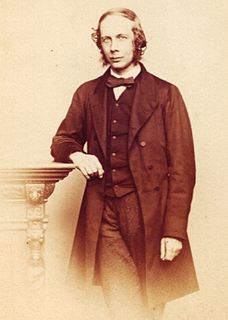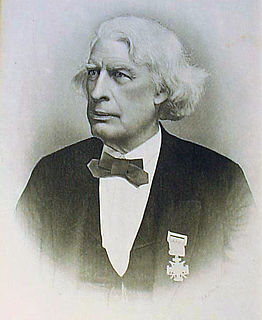A Quote by Edward Gibbon
The manly pride of the Romans, content with substantial power, had left to the vanity of the East the forms and ceremonies of ostentatious greatness. But when they lost even the semblance of those virtues which were derived from their ancient freedom, the simplicity of Roman manners was insensibly corrupted by the stately affectation of the courts of Asia.
Related Quotes
There was about all the Romans a heroic tone peculiar to ancient life. Their virtues were great and noble, and these virtues madethem great and noble. They possessed a natural majesty that was not put on and taken off at pleasure, as was that of certain eastern monarchs when they put on or took off their garments of Tyrian dye. It is hoped that this is not wholly lost from the world, although the sense of earthly vanity inculcated by Christianity may have swallowed it up in humility.
What were once felt to be defects-isolation, institutional simplicity, primitiveness of manners, multiplicity of religions, weaknesses in the authority of the state-could now be seen as virtues, not only by Americans themselves but by enlightened spokesmen of reform, renewal and hope wherever they may be-in London coffeehouses, in Parisian salons, in the courts of German princes.
Our minds tell us, and history confirms, that the great threat to freedom is the concentration of power. Government is necessary to preserve our freedom, it is an instrument through which we can exercise our freedom; yet by concentrating power in political hands, it is also a threat to freedom. Even though the men who wield this power initially be of good will and even though they be not corrupted by the power they exercise, the power will both attract and form men of a different stamp.
Julian was not insensible of the advantages of freedom. From his studies he had imbibed the spirit of ancient sages and heroes; his life and fortunes had depended on the caprice of a tyrant; and, when he ascended the throne, his pride was sometimes mortified by the reflection that the slaves who would not dare to censure his defects were not worthy to applaud his virtues.
I lost the conviction that lights would always turn green for me, the pleasant certainty that those rather passive virtues which had won me approval as a child automatically guaranteed me not only Phi Beta Kappa keys but happiness, honor, and the love of a good man; lost a certain touching faith in the totem power of good manners, clean hair, and a proven competence on the Stanford-Binet scale. To such doubtful amulets had my self-respect been pinned, and I faced myself that day with the non-plused apprehension of someone who has come across a vampire and has no crucifix at hand.
A people who still remembered that their ancestors had been the masters of the world would have applauded, with conscious pride, the representation of ancient freedom, if they had not long since been accustomed to prefer the solid assurance of bread to the unsubstantial visions of liberty and greatness.
There are many reasons that universities in East Asia have not reached the positions that they had hoped for. After all, we must remember that modern East Asia did not begin with Confucius. In fact the experience of modern education in East Asia is relatively short and granted that time scale, many universities are doing fine.
Fashion is not just about trends. It's about political history. You can trace it from the ancient Romans to probably until the '80s, and you can see defining moments that were due either to revolutions or changes in politics. At the end of the Roman era, there was this whole move against togas, because that was the signifier of the Roman Empire. In the same way, the '60s were a reaction against the '50s and so on. But now we've been feeding on a sort of cadaver. At the moment, we're just endlessly recycling the past.
[G]overnment can, instead of extending freedom, restrict freedom. And note ... that the 'can' quickly becomes 'will' the moment the holders of government power are left to their own devices. This is because of the corrupting influence of power, the natural tendency of men who possess some power to take unto themselves more power. The tendency leads eventually to the acquisition of all power - whether in the hands of one or many makes little difference to the freedom of those left on the outside.
The Kassideans or Assideans...arose either during the Captivity or soon after the restoration...The Essenians were, however, undoubtedly connected with the Temple (of Solomon), as their origin is derived by the learned Scalier, with every appearance of truth, from the Kassideans, a fraternity of Jewish devotees, who, in the language of Laurie, had associated together as 'Knights of the Temple of Jerusalem.'...From the Essenians Pythagoras derived much, if not all, of the knowledge and the ceremonies with which he clothed the esoteric school of his philosophy.





































